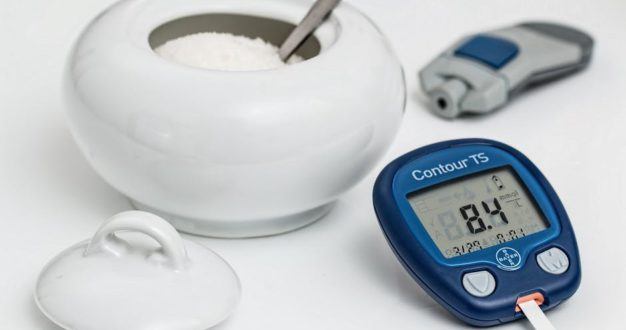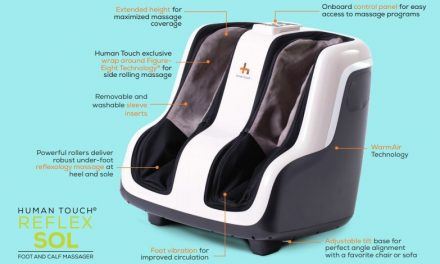Many diabetic patients do not experience early warning signs or symptoms in particular until when the blood level gets too high (hyperglycemia) or too low (hypoglycemia). Hyperglycemia can lead to severe damages to some organs in the body and many complications.
To avoid diabetes-related complications, blood glucose must be controlled to a great extent in order to reduce the risk of severe hyperglycemia which further prevents any traces of diabetes complications.
For anyone with prediabetes or diabetes, a home blood glucose meter is an essential device.
The glucose meter must be accurate to determine the level of the blood glucose and how best it should be controlled. If the glucose meter is faulty, then the reading, the final result and the outcome (the actions you take to manage the blood sugar) will be affected.
There is a general belief that all the glucose meters that are cleared by the FDA are correct, but it has turned out not to be true.
In this guide, we will be looking at how to check the accuracy of a glucose meter? And, some factors that could affect the accuracy of the glucometer and possible ways to ascertain the accuracy of a glucose meter.
And, most importantly, the differences in the accuracy between home blood glucometer vs. professional glucose meter vs. lab blood glucose test.
Before anything, let’s try to understand what we mean by blood glucose accuracy.
Tip: Don’t get caught-up with Type 2 Diabetes Myths and foods for diabetes.
What is Blood Glucose Accuracy?
A home blood glucose meter is a machine that is small and portable, used in measuring the quantity of glucose in the blood. Diabetic patients always use blood glucose meters to monitor and accordingly manage their condition. They can easily check the level of their blood glucose at home, work, and the school even while on transit or walking.
Many diabetic patients may need to monitor often their blood glucose more than others do. Some diabetic patients, especially those who take insulin, are always being advised to monitor their blood glucose using a glucose meter.
How often they use the blood glucose meter should be dependent on the instruction or recommendation from the health care provider based on the type and severity of their diabetes.
Tip: These are the things that most people with diabetes didn’t know about nighttime hypoglycemia.
How to Use a Blood Glucose Meter Accurately?
All glucose meters do not work the same way.
Some calculate the quantity of electricity that will be able to pass through the sample while others measure the reflection of light from the sample.
Several models can store and record test result, and other models can connect to computer and store results or print the result out.
There are more than 25 different blood glucose meters available on the market. Their differences include:
- The quantity of blood you need for each test
- The alternate testing sites for tests
- Their testing speed
- Their overall size
- Their ability to store the result in memory
- Smartphone connectivity
So, it is very important to know how to operate your type of glucose meter and be able to interpret the result.
Your health care provider can give the necessary assistance on how to use your glucose meter. Don’t be shy to ask for guidance!
Tip: Never underestimate the value of regular A1c Testing.
Key Instructions for Using a Blood Glucose Meter
Here are some tips for using a blood glucose meter for accurate results and for the meter to work at its optimum accuracy.
- Wash your hands with warm water using soap and dry with a clean towel.
- Clean the body part you going to take blood from with alcohol wipe.
- Prick the body part (especially the fingertip) with a clean lancet.
- Hold the body part down until blood appears and use the test strip to collect the blood.
- Insert the test strip into the glucose meter and follow the meter’s instructions to the dot.
Both instructions for the test strips’ and the meter should be carefully followed to be able to get accurate results.
[et_bloom_locked optin_id=optin_3][/et_bloom_locked]
Importance of Regular Blood Glucose Monitoring
Diabetic patients learn about their condition more with regular glucose monitoring. It helps them to know the right time for important decisions about diet, medication dosage, and exercise.
Regular blood sugar glucose monitor helps both the patients, their family members, the doctors and the rest of the health care team.
Again, checking the level of blood glucose should be a routine because this will enable people with diabetes to know when their blood sugar has gone extremely low (hypoglycemia) or high as the case may be. Both ‘lows’ and ‘highs’ can cause a serious health challenge.
Tip: You should not get caught up with diabetes food myths. Depending on the type of diabetes and it’s a complication, you should stick with the best healthy diet for you. Here are the MediChannel recommended Type 2 Diabetes Food List, Diabetes Gastroparesis Food List and Reactive Hypoglycemia Food List.
What Factors Affect the Blood Glucose Monitor Accuracy?
There are a few factors that can affect the accuracy of your blood glucose test results, regardless of the accuracy of the machine you use.
Let’s dig into them.
Test Strips
When using a test strip, there is an interaction between the enzymes on the strip and the glucose in the blood. Electrons are released as a result of this interaction which creates an electrical current, which is being converted by the meter into a glucose concentration to give a reading.
Because of the complexity of this process, it requires a very sensitive test strip to read out the desired result.
Inaccuracy in results may be as a result of the following reasons, which are related to test strips’.
- When the test strips’ are affected by moisture or heat
- When the test strips’ are expired or damaged
- When the blood applied to the test strip is not sufficient
- When the test strip is not appropriate or incompatible for the meter
- When the test trip has specks of dirt on the sample area
Environmental condition
The condition of the environment can affect the chemistry of the test strip, the blood flow, and its composition.
Remember, an enzyme in the strip chemistry is sensitive to the environmental conditions, such as temperature and humidity. The accuracy of the result may be affected when the activity of enzymes decreases as a result of temperature and humidity extremes.
Also, the body reacts at different temperatures differently. A high heat dehydrates the body and concentrates glucose levels. Also, the lower blood flow and circulation to the testing sites are affected by low temperatures.

Tip: Did you know which blood glucose meters are considered the Top 10 for Diabetes Monitoring?
Substances on the Skin
When there is a substance on the skin, it can contaminate the blood sample and thereby affect the accuracy of the result.
Since most modern meters use a small-sized blood sample, touching anything that has sugar without washing the hands may affect the test result.
Even when the hands are washed but not completely dried, the remaining water can as well have a diluting effect on the blood sample.
Quantity of Blood in the Test Strip
Having too much or insufficient blood in the strip sample area can result in inaccurate results.
Testing Site Location
The result of the tests from the thigh, calf or forearm is always not accurate than testing with the fingertip due to the physiological differences in the blood circulation of some areas of the body.
Hematocrit Variations
The red blood cell proportion in the blood can affect the result accuracy. The variance in the number of red blood cells is capable of interfering with the glucose calculation.
Tip: Do you know why the Dario Blood Glucose Meter is considered a ‘trendy smart meter’?
Meter Variances
All the meters on the market have different enzymes, calibration processes, and computer programs. Using separate meter items (e.g. stress strips’ manufactured for another meter) can lead to the variation of results.
Incorrect Coding
Some meters require coding. This means that code on each strip vial would be provided to be able to calibrate it before use. When the code provided does not match correctly, it will result in inaccurate readings.
[et_bloom_locked optin_id=optin_3][/et_bloom_locked]
Accuracy Difference of a Home Glucometer vs. Professional Meter vs. Lab Test
Home and professional meters measure blood glucose with a sample from the fingertip, or alternative sites. The blood sample then is analyzed, including the red blood cells.
Lad test is being transformed by professional lab staff based on the blood collected from you. Usually, the sample is drawn from the vein in the arm, and the sample will be processed to take away red blood cells leaving on the plasma to be tested.
Which One is More Accurate? Home Glucometer vs. Professional Meter vs. Lab Test
Generally, lab tests demonstrate a level of accuracy that is quite higher than the professional and home blood glucose meters.
Nevertheless, lab tests are not guaranteed to be 100% accurate, they just have a thin margin of error when we compared with home-based and professional meters.
The result of the home-based blood glucose meter test is not meant to be precise measures, rather they are intended to provide accurate results for everyday personal treatment decisions without visiting a doctor.

Tip: Never underestimate the value of regular A1c Testing.
How to Check the Accuracy of the Glucose Meter?
Easy, Just Take the Meter to the Office of a Health Care Provider
Then the health care provider will examine the user’s technique to be sure he is correctly using the meter. Also, the health care provider will evaluate a blood sample in comparison with a routine laboratory method.
When the result obtained on the laboratory method is the same as the one from the glucose meter, then it is obvious that the meter is working well. But, if the results were not the same, the manufacturer should be contacted if necessary to ask for a replacement or refund.
Check Using Electronic Controls or Test Quality Control Solution
Electronic controls and Test quality control solutions are both methods to check the performance of the meter.
Electronic control checks only the working performance of the meter while the test quality control solution checks the test strip and the meter accuracy.
What is a Blood Glucose Meter Control Test?
The pharmacy Technician Manuel defines blood glucose meter control as a formula that initiates blood used in the place of blood to test the strips’ and the blood glucose meter precision. This only works with a definite meter which usually appears as low, regular, or even high control.

Tip: We previously explained the Root Cause for Type 2 Diabetes.
Situations to Use Blood Glucose Meter Control Test
FDA recommends the effective use of a blood glucose meter control by constant checking of the meter over one in a lab or clinic to ascertain whether the meter is in good order.
The agency instructed that the blood glucose meter should be tested regularly with a control solution at each of the following circumstances.
- Whenever a new test strips’ container is opened.
- Occasionally as the test strips’, the container is in use.
- Whenever the meter is dropped.
- Whenever the meter gives unusual results.
- For proper technique or when practising testing without blood.
- When the monitor is new, or it is a replacement monitor.
- Once a week or once a month.
- When advised by a health care professional.
- When the machine is thoroughly cleaned.
What to Do if Your Blood Glucose Meter is Not Accurate?
To make sure that glucose testing is viable and accurate, a quantity control check should be performed. A lot of things may affect the veracity of the meter reading, even when the meter is functional. According to the instructions given by the meters manufacturers, there should be regular quality control checks on the meter.
Conclusion
An inaccurate glucometer can be misleading as it tends to give wrong results that may end up endangering one’s life. It would practically over/underestimate the level of the blood glucose level, thereby exposing the user to the risk of hyperglycemia or hypoglycemia. Therefore, it is essential always to check the accuracy of any glucometer before to enable a viable and reliable result.
Question: Do you know which blood glucose meters are considered the Top 10 for Diabetes Monitoring?
Question: Do you know why the Dario Blood Glucose Meter is considered a ‘trendy smart meter’?
Tip: Never underestimate the value of regular A1c Testing.
[et_bloom_locked optin_id=optin_3][/et_bloom_locked]










Recent Comments